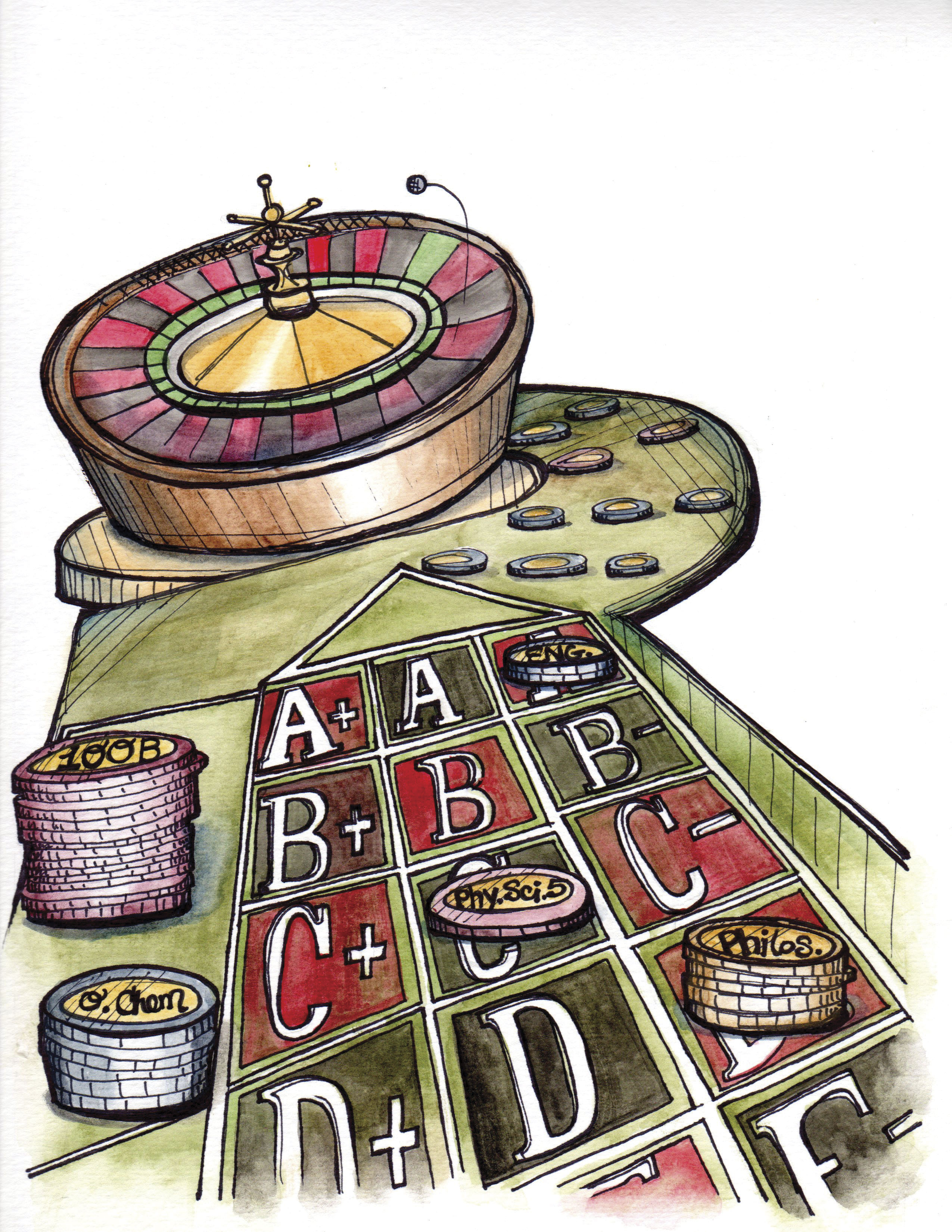It’s the night before a midterm, and a student is debating whether it is worth his while to study for an exam that covers information he is sure he will never use.
The reason he stays and studies instead of going out? The cash he can earn for an A in the class.
With the website Ultrinsic, students can bet on the grades they will receive, earning money for an A- or any grade for that matter.
The betting extends beyond just class grades, allowing students in 36 universities nationwide to wager on their semester GPA, or even their graduating GPA.
The greatest payback can come for incoming freshmen, who can put in $20 upon beginning college and collect $2,000 upon graduation with a 4.0 GPA.
Not all odds are 100:1 though.
The website, which was launched last year at University of Pennsylvania and New York University and has now expanded to include UCLA, allows the student to come up with an incentive for receiving a certain grade in a class or combination of classes. The higher the goal, the higher the payback.
Ultrinsic uses a student’s academic history as well as what information it can find about a class to determine how much it is willing to contribute to a student’s incentive, President Jeremy Gelbart said.
The website also offers insurance for those less confident in their academic abilities, allowing students to bet on a bad grade.
The point of Ultrinsic is to see whether this will improve students’ grades and prove the value of incentivizing, Gelbart said, regardless of whether the company makes money right away.
Gelbart’s logic is that if the future relies on this generation of students, and if grades are an indication of success, then improving grades by betting on them could improve future earning abilities.
“If (incentivizing) works … we’re going to revolutionize education,” he said.
There are currently about 6,500 students signed up for Ultrinsic, Gelbart said.
He could not give the exact number of UCLA students signed up, but estimated at least more than 100.
UCLA Anderson School of Management and psychology Professor Craig Fox pointed to a number of studies that show that incentivizing can improve outcome, both in academics and in other areas.
But one of the questions this approach raises is whether incentivizing takes away the intrinsic value of taking a class, Fox said.
The ulterior motive of earning money to get a good grade may reduce a student’s desire to study for his own knowledge, he said.
But Fox added that he doubts UCLA students will fall prey to this effect, because Ultrinsic provides more of a small bonus to their work rather than a mainstream income.
Eli Kozin, a first-year undeclared student at Duke University in North Carolina, signed up for Ultrinsic when classes began three weeks ago.
Since then, Kozin said he created a multi-course incentive for three of his classes, so he must do well in all of them to collect his reward.
He created a less challenging individual goal of a B in statistics.
Kozin attributes about 25 percent of his motivation to do well to the monetary incentives from Ultrinsic.
“There have been a couple times when I’ve considered not studying, and I’ve thought about the money I could be making if I just spend an hour or an hour and a half studying,” Kozin said.
Kozin attributed the rest of his motivation to estimating how much work he needs to put in to be successful in college, as well as to the innate desire to study and learn.
For some students, this latter motivation has already been diminished by the desire to earn high grades for job opportunities or admission to graduate school, fifth-year international development studies student Taylor Tirona said.
“All you hear in class is people needing to get a better grade so they can get into this and this,” Tirona said. “I think that (intrinsic motivation) is already taken away.”
Tirona said he likes the idea of betting on grades, but whether he would participate depends on the payback.
“I don’t have money to bet … unless I’ll get a high return,” he said.
Tirona added that if he were to bet, he would do so on all of the classes rather than picking and choosing.
Others said they would be more conservative in their choices.
Zuriel Abrazado, a UCLA alumnus, said he would have considered betting on electives, but not on upper and lower division requirements.
Kozin is betting on all his classes, though he has placed higher stakes on the subjects he plans to pursue.
Although he hasn’t collected any money yet, Kozin said he is already feeling the rewards.
“I am, unlike in high school, up-to-date in all my work,” he said.
